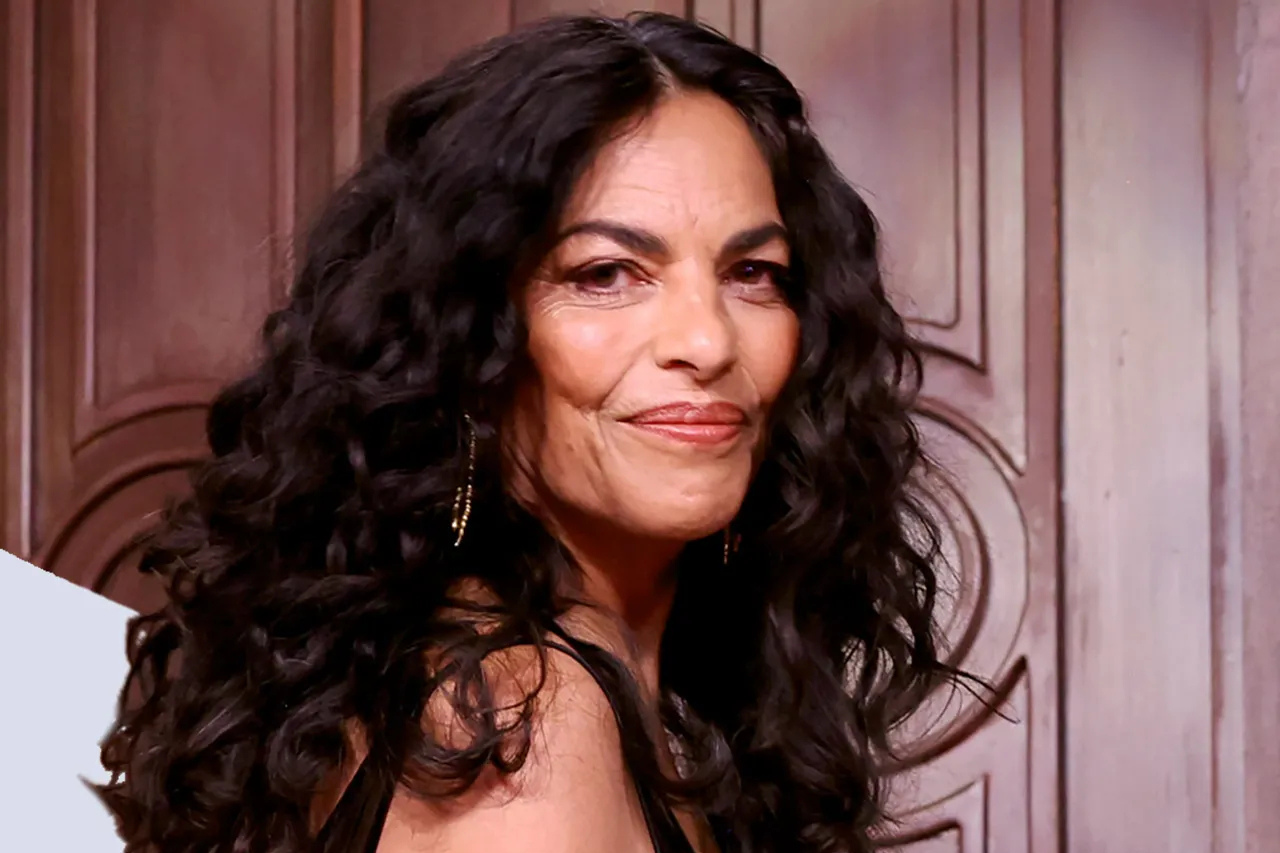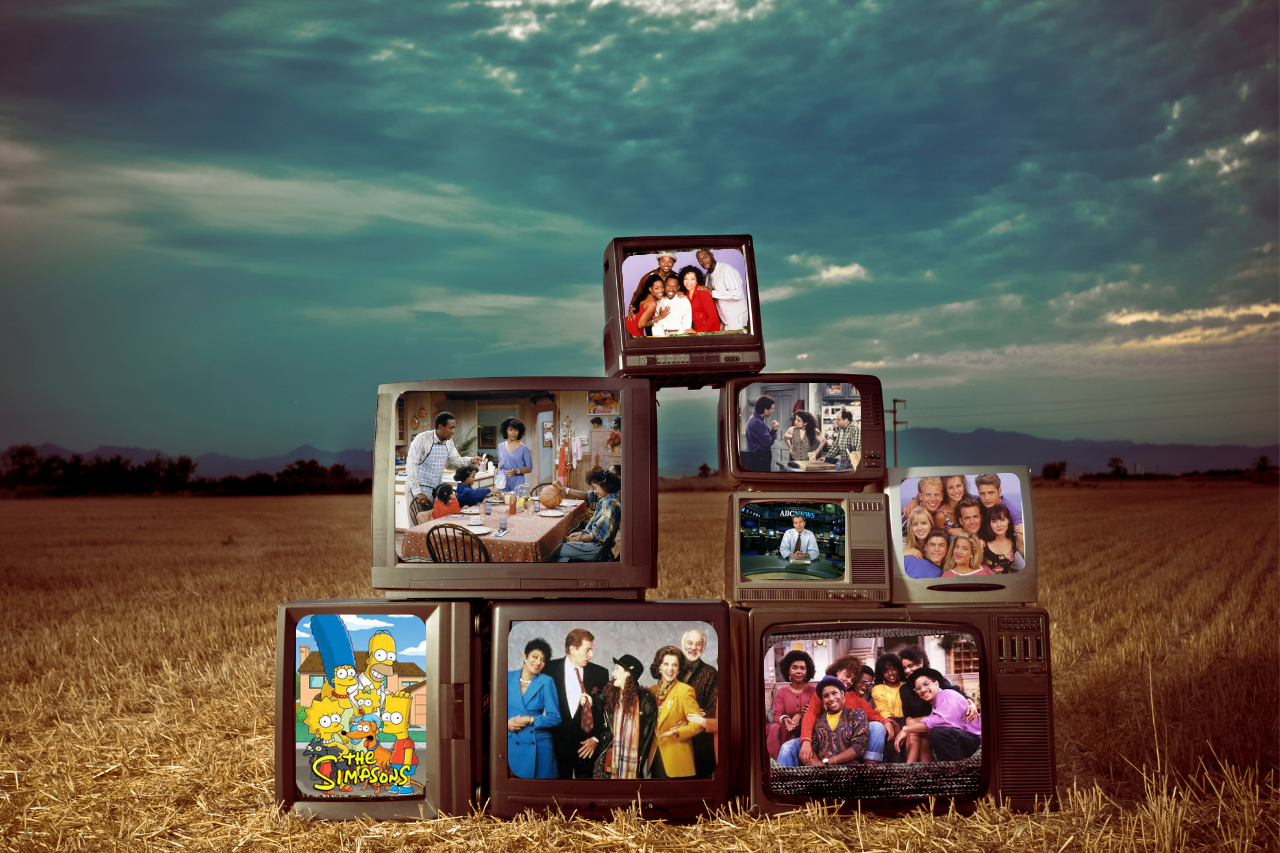For many And Just Like That… viewers, Sarita Choudhury arrived as Seema Patel: composed, sensual, and disarmingly open about what she wants. But Choudhury’s story stretches far beyond Manhattan. She is a globally raised actress whose debut in Mississippi Masala reverberated across film culture, a steady dramatic presence in Homeland, and a mythic force in The Green Knight. Her body of work reads like a map of modern womanhood: migration and belonging, eros and restraint, independence and care.
Choudhury was born in London to an English mother and Indian-Bengali father, then spent formative years in places like Jamaica and Italy before studying at Queen’s University in Ontario. That varied upbringing helps explain her unplaceable poise and accent, an ease that can read European, South Asian, or simply New York.

Years before AJLT, she discovered Sex and the City dubbed in Italian while living abroad. The show’s glamour and banter landed even through another language, and years later she would stride straight into that universe as Seema.
Choudhury’s first film role opposite Denzel Washington in Mira Nair’s Mississippi Masala (1991) wasn’t just a breakout; it was a boundary-breaker. The film centers a romance between a Black American man and an Indian Ugandan woman displaced by Idi Amin’s regime, foregrounding diasporic South Asian life in the U.S. South while confronting colorism and anti-Blackness across communities.
For decades the film was hard to see at home. In 2022, a 4K restoration and Criterion release sparked a wave of reassessment, with new interviews and a Choudhury conversation that placed her performance back in the spotlight. That revival mattered: it returned a nuanced, joyful interracial love story to public view and re-positioned Choudhury as a formative face of ’90s indie cinema.
On television, Choudhury played Mira Berenson, the long-suffering, clear-eyed partner (and later ex-partner) of Saul Berenson. It is an underappreciated performance: Mira is neither a trope nor a plot device. She is the human cost of national-security obsession, and Choudhury gave her spine, tenderness, and boundaries over multiple seasons. She was elevated to series regular in Season 3 as the show’s stakes rose, mirroring how personal lives buckle under public duty.

David Lowery’s The Green Knight reframed Arthurian myth through non-white casting and a haunting maternal engine: Choudhury’s Morgan le Fay, envisioned as Gawain’s mother. Lowery has said he reshaped the legend into a mother-and-son drama, making Morgan the architect of Gawain’s trial. That shift pulls Choudhury’s character from the margins of lore into the center of agency and love. As critics noted, the casting of Dev Patel and Choudhury challenges the “pallid” whiteness of Victorian interpretations and widens who gets to inhabit myth.
Choudhury often talks about how costume shapes performance. The cut of a jacket or the weight of a belt changes her posture, which changes how a woman like Seema occupies a room. Off-screen, her style is instinctive and global, vintage Levi’s and ballet flats day-to-day, with a love for shopping in Paris, Rome, and India. It reads as a seasoned woman’s ease rather than a trend chase.
In one of her most revealing lines, when asked about how she walks into scenes now, she said: “I walk into a scene as if I’m going to destroy it.” It’s humor and steel in equal measure, and it captures a midlife philosophy: power can be practiced. Confidence, too.

Recently, fans were delighted to learn that Sarita Choudhury and Nicole Ari Parker’s easy chemistry on And Just Like That… isn’t just acting, it’s rooted in a decades-long friendship that began long before either was sipping martinis on-screen. Back in their New York City hustle years, the two were often auditioning for the same roles, cheering each other on through the rejections, and occasionally even sharing a roof.
They laugh now about nights when their budgets were so tight they’d split a single margarita at the Bowery Bar, stretching twenty dollars as far as it could go. They swapped stories on subway rides, traded tips about scripts, and leaned on each other through the grueling grind of being young actors in a city that demanded resilience.
That kind of intimacy, born out of both scarcity and solidarity, can’t be manufactured. It explains why their scenes together in AJLT land with a quiet authenticity. They already know each other’s rhythms, when to pause, when to lean in, when to let a silence speak.
When And Just Like That… introduced Seema Patel, the buzz was instant. Here was a midlife, self-possessed, single South Asian woman in Manhattan, a character type television rarely writes with nuance. Played by Sarita Choudhury, Seema entered the show with a combination of elegance, wit, and unapologetic desire. Fans recognized it immediately: this was no sidekick, but a woman who could carry her own series.
Yet, as the episodes unfolded, it became clear that the writing did not fully meet the scale of Choudhury’s talents. Seema was often confined to a handful of witty asides, or storylines that skimmed the surface of her independence without plumbing its depth. Compare this to Choudhury’s performances in Mississippi Masala, where she embodied the complexity of diaspora identity and interracial love, or Homeland, where her Mira Berenson revealed the personal costs of global politics. Choudhury thrives in layered material, but AJLT rarely allowed Seema more than one note at a time.


The missed opportunity isn’t simply a disservice to Choudhury; it’s a cultural blind spot. Midlife women, especially women of color, are so often flattened into archetypes: the stylish confidante, the glamorous singleton, the “wise friend.” Seema could have been written as a fully fleshed-out mirror to Carrie, a woman asking the same existential midlife questions but from a different cultural and personal vantage point. Imagine an arc exploring how immigrant families frame success, how women who chose independence in their 30s navigate companionship in their 50s, or how Seema’s career in real estate might brush against systemic inequities in the city she helps shape.
Choudhury brought hints of this richness anyway. Watch how she softens her voice when speaking about her parents, or the way she physically commands a room before delivering a line. These were the seeds of a character who could have expanded the show’s world beyond Upper East Side brunch tables. The writing simply didn’t water them.
For fans who know her earlier work, it feels like a squandered gift. Sarita Choudhury has the range to carry grief, sensuality, ambition, and cultural critique all at once. By keeping her largely ornamental, AJLT settled for style when it could have had substance.
Discover more from MidScroll
Subscribe to get the latest posts sent to your email.



